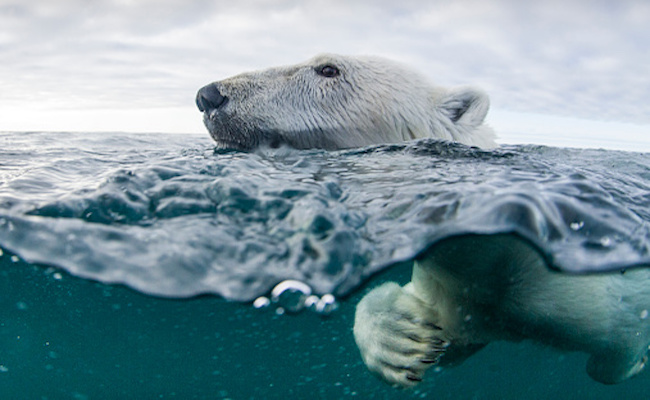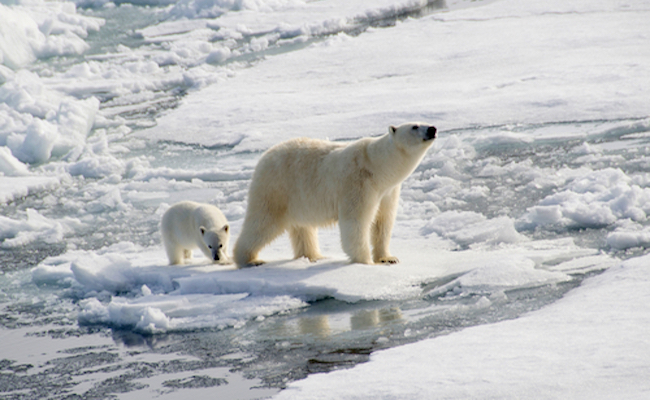
Happy Earth Day, people! Let’s stop doing horrible stuff to polar bears, shall we? A researcher at the University of Alberta has found that polar bears are making longer and longer swims across open ocean because of fractured, melting sea ice. Researcher Andrew Derocher has been tracking polar bears along Canada and Alaska’s northern coasts for the last six years.
In studying polar bears in Canada and Alaska, Derocher found that melting ice often leads to bears getting caught in places they can’t survive, so they’re forced to go on extremely long-distance swims. Polar bears are not evolutionarily equipped to do these kinds of swims and the results are completely devastating. One particularly heartbreaking journey occurred outside of Derocher’s study in 2009. A mother bear swam 250 miles for nine days without rest off the coast of Alaska and ended up losing 22 percent of her body weight. Her 1-year-old cub died along the way.

Derocher’s study, which was published in the journal Ecography, showed a dramatic increase in the number of bears forced to cross great distances to find suitable ice to stand on. In eight years, the percentage of monitored bears who performed a long-distance swim (at least 50 kilometers) rose from 25 percent to 69 percent. According to Derocher, the number of bears making these massive swims is directly proportional to the loss of sea ice in the area.
Though Derocher admits monitoring polar bears is difficult because collars often fall off or malfunction, he also asserts the trend is quite clear. This is especially true when we consider the numbers from the decades ago, a time when long distance swims would have been virtually unheard of.
Scientists hope the bears will adapt like these poor creatures who are forced to dive deeper and hold their breath for more than three minutes in search of food. Sadly, we’re effecting negative environmental changes so quickly, it’s difficult to say whether polar bears will be able to keep up.
(Via The Washington Post)






